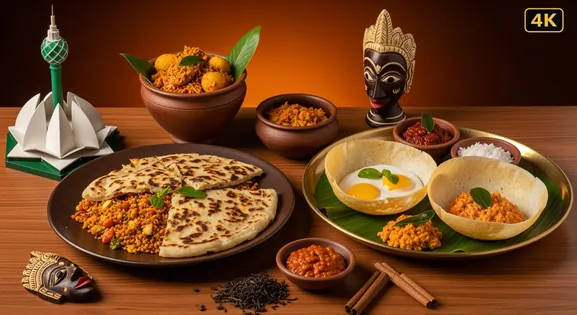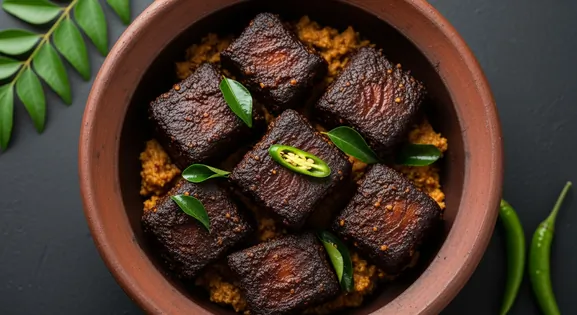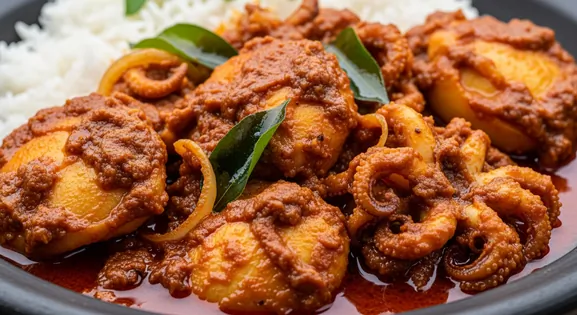
Colombo
Colombo's vibrant street food scene blends Tamil, Sinhalese, and colonial influences in a colorful culinary tapestry. Navigate bustling markets and oceanfront stalls to discover Sri Lanka's authentic flavors safely.
Discover Sri Lanka's aromatic cuisine blending coconut, spices, and fresh seafood across vibrant street markets and local eateries while navigating food safety in this tropical island paradise.
Popular vendors serve fresher ingredients and typically maintain better hygiene standards
Local patronage usually indicates authentic, safe food options that won't cause stomach issues
Vendors should use clean utensils, wear gloves when appropriate, and maintain separate areas for raw and cooked foods
Properly cooked food at high temperatures kills harmful bacteria common in tropical environments
Consume only peeled fruits or vegetables that have been washed in purified water
Tap water in Sri Lanka isn't safe for tourists; stick to sealed bottled water and avoid ice unless you're certain it's made from purified water
Colombo's vibrant street food scene blends Tamil, Sinhalese, and colonial influences in a colorful culinary tapestry. Navigate bustling markets and oceanfront stalls to discover Sri Lanka's authentic flavors safely.
Galle blends colonial heritage with Sri Lankan culinary traditions in its UNESCO-listed fort district. Discover fragrant curries, fresh seafood, and spice-infused cuisine amid cobblestone streets and historic architecture.
Sour fish curry with goraka, no coconut milk.
Bowl-shaped fermented rice flour crepe with crispy edges.
Dense, moist coconut cake with rice flour and spices.
Cuttlefish simmered in rich, aromatic coconut milk gravy.
Flaky wheat flatbread with curried vegetable filling.
Fresh fish simmered in fragrant coconut milk sauce.
Paper-thin stretched wheat dough folded into layers and grilled.
Tuna in vibrant red curry with goraka and spices.
Steamed rice flour noodles formed into flat, round nests.
Small shrimp deep-fried with chili powder and spices.
Prawns stir-fried in vibrant, spicy sauce with curry leaves.
Spicy deep-fried lentil fritter topped with whole prawns.
Whole crabs slow-cooked in rich, spiced coconut milk gravy.
May, June, October, November
Heavy rains can affect water quality and increase contamination risks for seafood
Monsoon rains can compromise hygiene at outdoor food stalls and increase foodborne illness risks
January, February, March, July, August, September
High temperatures accelerate food spoilage; ensure meat and dairy products are properly stored
Heat increases dehydration risk and food spoilage rates; drink plenty of fluids and eat freshly cooked meals
Explore India's diverse culinary landscape from vibrant street food markets to regional specialties while navigating food safety considerations in this spice-rich gastronomic paradise.
Discover Nepal's diverse culinary landscape where Himalayan traditions meet Indian and Tibetan influences, offering unique street foods and local specialties with important safety considerations.
Discover East Asia's diverse culinary landscape, from Japan's meticulous sushi to China's regional specialties. Learn essential food safety tips for navigating seasonal changes while experiencing authentic cooking techniques.
Explore Europe's diverse culinary landscape, from Italian trattorias to Spanish tapas bars and French bistros. Discover essential safety practices while navigating seasonal markets, street food festivals, and authentic regional specialties across this gastronomic paradise.
Discover Latin America and the Caribbean's vibrant culinary landscape, from Mexico's spicy street tacos to Brazil's churrasco and Caribbean seafood delicacies. Navigate distinctive regional preparation methods while ensuring safety across diverse climates and bustling mercados.
Discover Oceania's diverse culinary landscape, from Australia's modern fusion to traditional Polynesian earth ovens. Learn essential food safety tips for navigating tropical conditions while experiencing authentic Pacific Island cooking techniques and fresh seafood.
Navigate Southeast Asia's vibrant street food scene, from Thailand's aromatic curries to Vietnam's fresh herbs and Malaysia's spice blends. Discover essential safety practices for enjoying authentic flavors while managing tropical climate challenges.
Discover South Asia's vibrant culinary landscape, from India's aromatic curries to Nepal's hearty dumplings. Learn essential food safety tips for navigating diverse street food scenes while experiencing authentic flavors in Delhi, Mumbai, Kathmandu, and Colombo.













